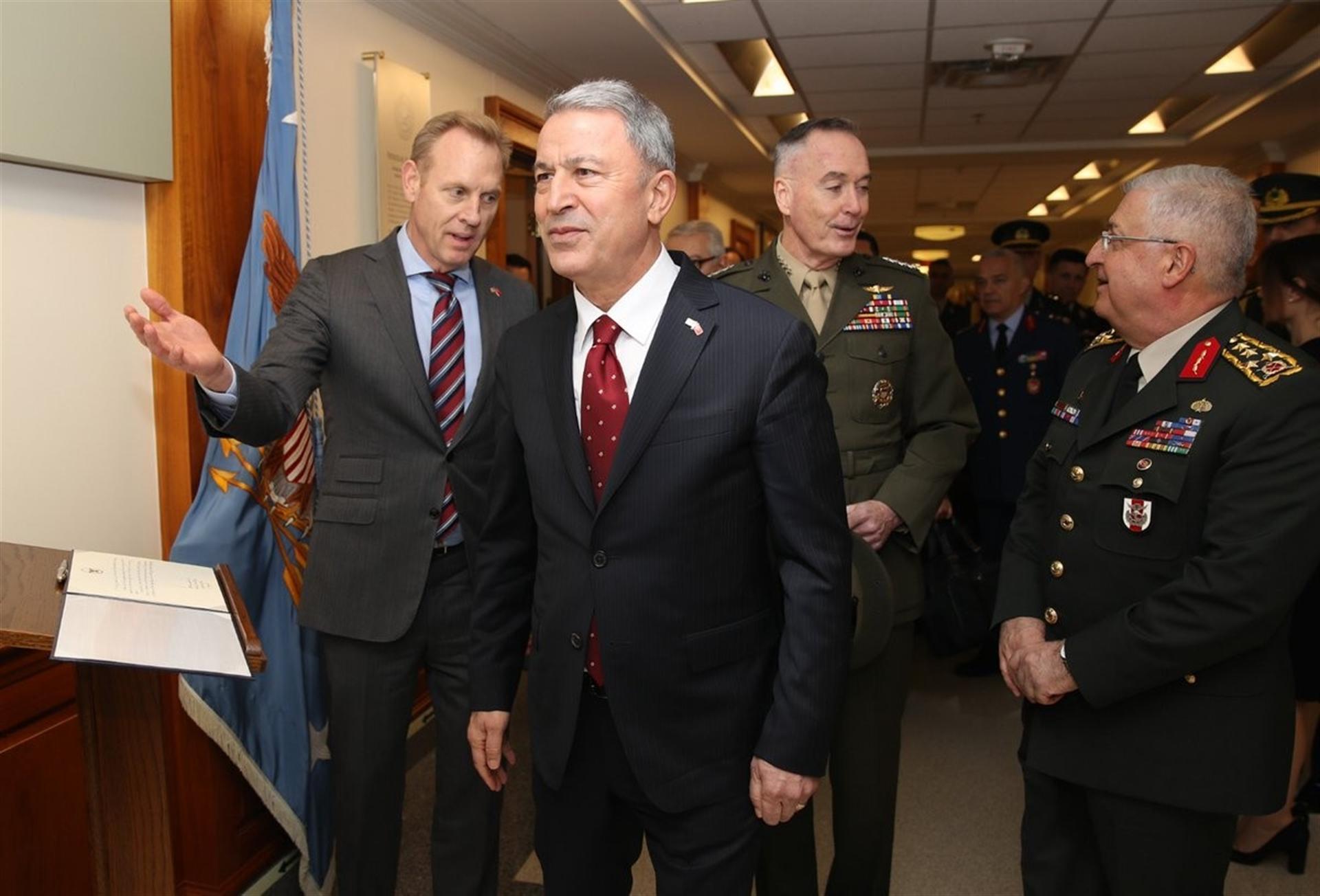
Turkish Defence Minister Hulusi Akar told Pentagon officials during a visit to the United States that there must not be a vacuum of power during the withdrawal of U.S. forces from Syria, Turkey's state-run Anadolu Agency reported on Feb. 23.
A senior U.S. administration official said on Feb. 22 Washington will leave about 400 U.S. troops split between two Syrian regions, a reversal by President Donald Trump that could pave the way for U.S. allies to keep troops in Syria.
"We reminded our partners that there should be no vacuum of power in any way during the withdrawal," Akar told the agency, describing his talks in the United States with acting U.S. Defense Secretary Patrick Shanahan.
According to Akar, the U.S. authorities accepted on working to avoid any delay on the Manbij roadmap and to conclude it quickly.
During the meeting, the Turkish delegation also mentioned the extradition of Fetullah Gülen and FETÖ members residing in the U.S. He went on to say that Ankara “will follow the issue closely in upcoming days”.
US Defense Secretary highlights importance of meeting
Akar arrived in Washington on Feb. 22 together with Chief of General Staff Yaşar Güler to discuss Syria and other issues with their U.S. counterparts.
Greeted by Shanahan, Akar was welcomed with a ceremony that included a military band and three cannons that fired off artillery rounds in honor of his arrival.
“We wanted to do something special, so we brought out the cannons with [Joint Chiefs of Staff] Chairman [Gen. Joseph] Dunford’s permission,” Shanahan reportedly said to Akar.
Shanahan highlighted the importance of the meeting, saying he wants to work with Ankara to find solutions to the problems in Syria and was looking forward to making progress.
“Our visit is important not only for bilateral relations, but also for security and stability in the region,” said Akar, who thanked Shanahan for his invitation.
Akar also took the opportunity to discuss the terrorist organizations that Turkey is dealing with.
“I would like to underline the difference between the YPG, PYD, PKK type terrorist organizations,” he said.
“We have never had any problem with Kurds or other ethnicities in Turkey or outside Turkey in Syria. But there will be fighting against terrorist organizations.”
A couple hundred American troops will remain in Syria after the U.S. pullout as part of a multinational force to establish a safe zone in the region, the Pentagon said Feb. 22.
"U.S. forces numbering a couple hundred will remain in northeast Syria as part of a multinational force," Pentagon spokesman Sean Robertson said on Feb. 22.
Robertson also said the U.S. is looking at the "safe zone along the Turkish border".
"The multinational observing and monitoring force will be made up primarily of NATO allies, who along with U.S. forces will maintain stability and prevent an ISIS resurgence in Syria," Robertson added, using another term for ISIL.
A defense official who spoke to Anadolu Agency on condition of anonymity said Turkish and SDF forces would not be involved in the planned safe zone.
On Feb. 21, the White House said 200 troops will remain in Syria as part of a peacekeeping effort. However, a report published by The Washington Post said 400 troops will remain, with 200 in northeast Syria and another 200 at the al-Tanf garrison in southern Syria.
"The U.S. will maintain a presence at the al-Tanf garrison in southern Syria," said Robertson.
The base at al-Tanf has been viewed by some within the administration as a critical foil to Iran establishing a land route from Tehran to Damascus via Iraq.